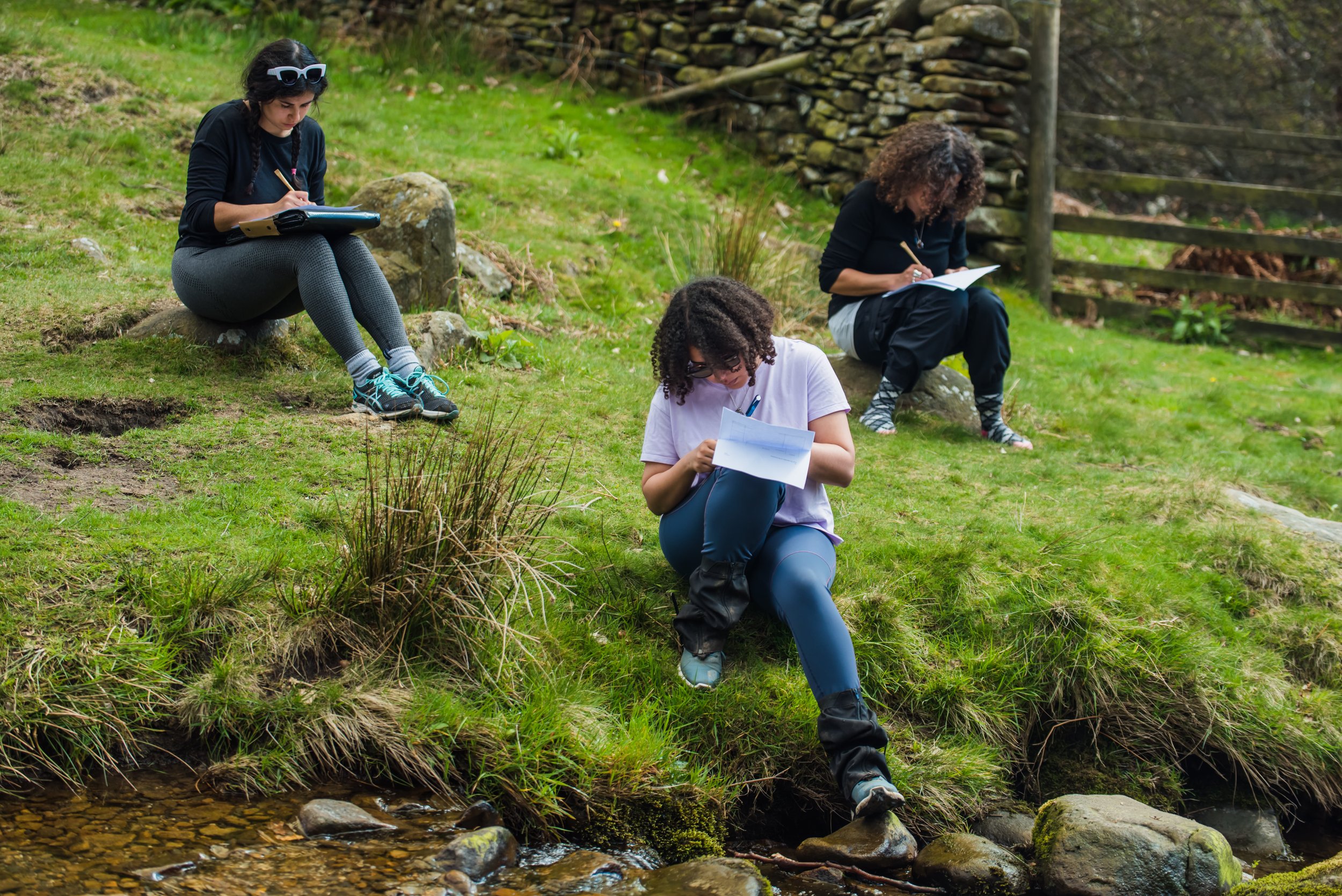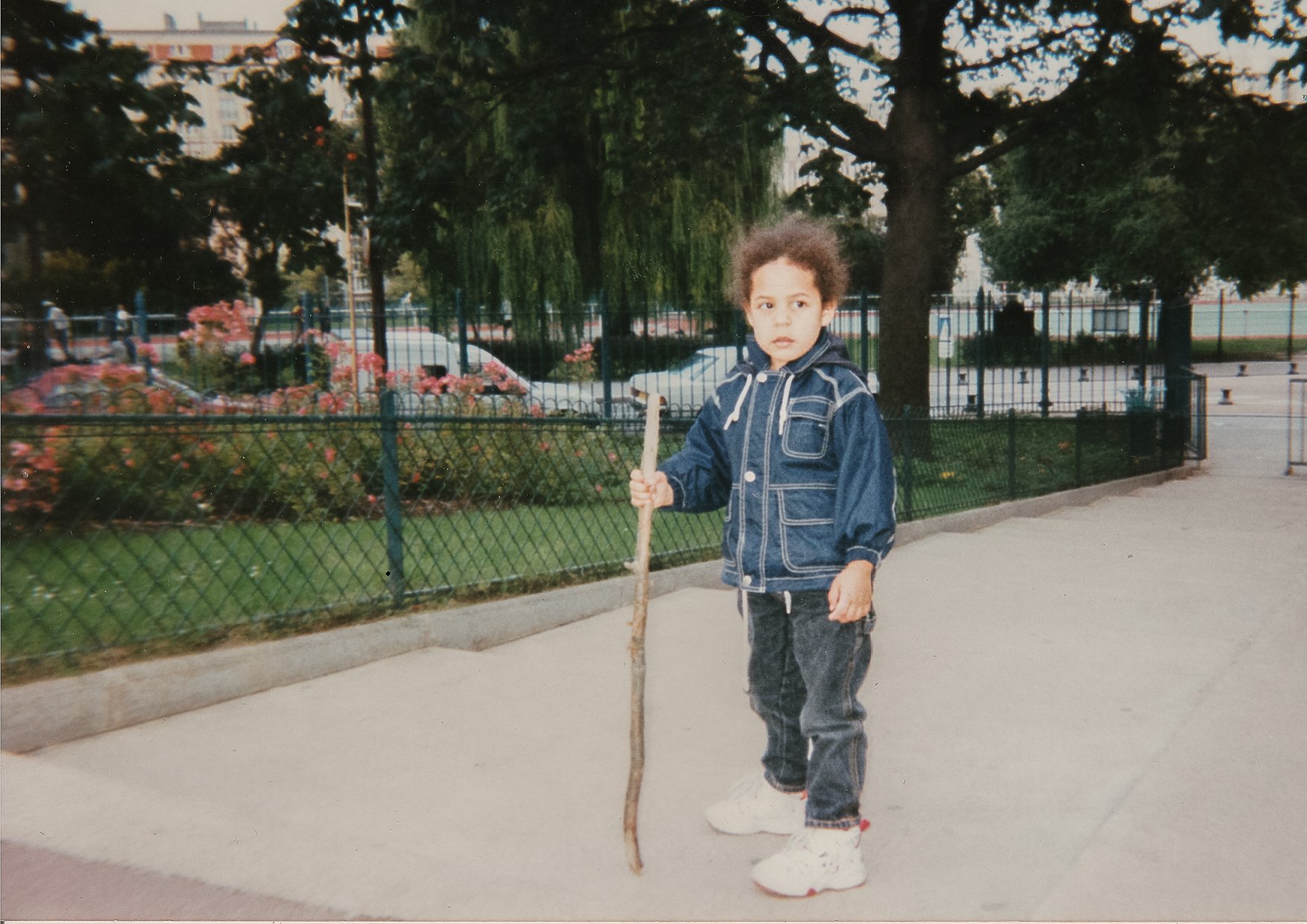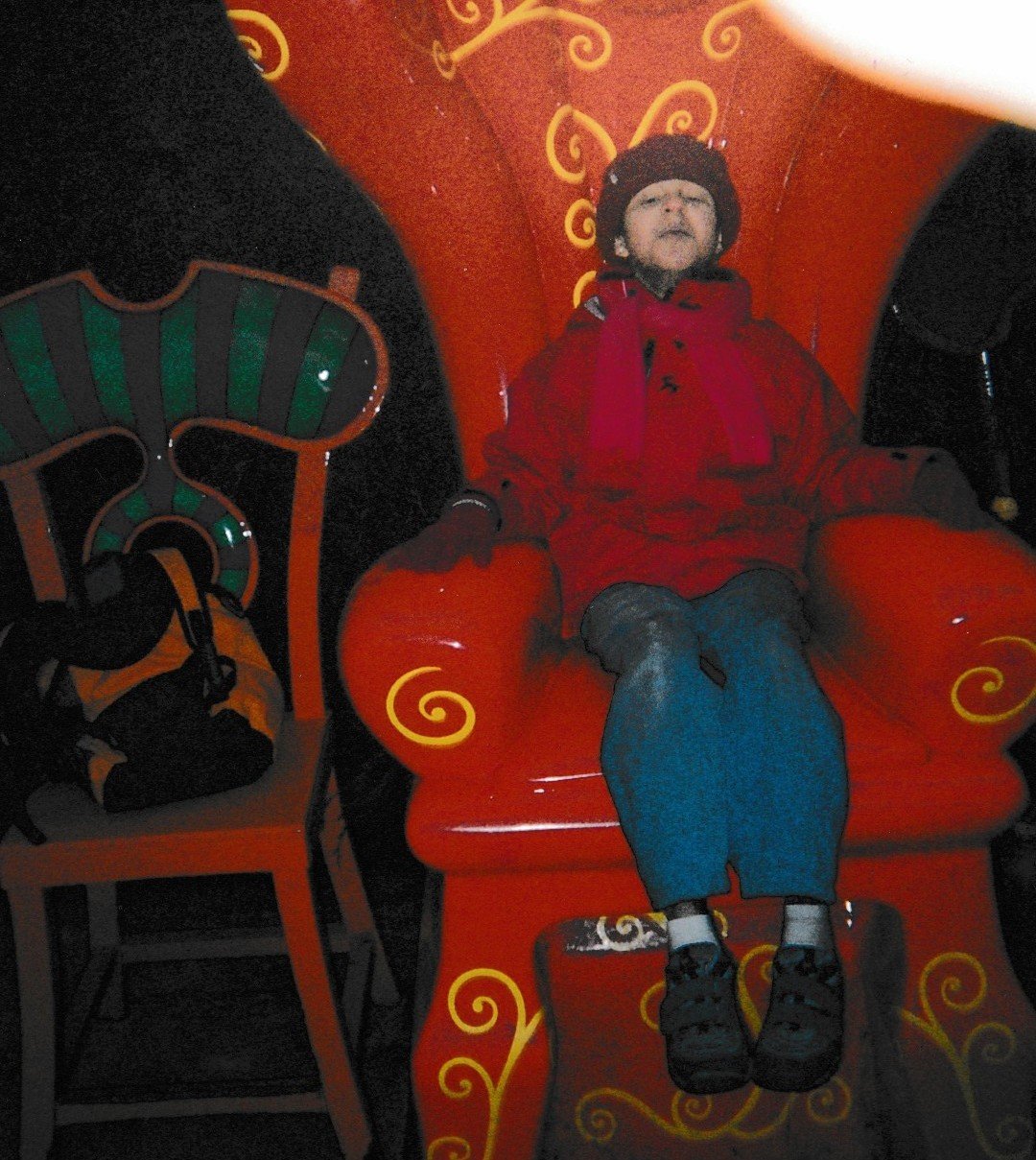Inherited Survival Skills
| By Virginie Assal |
A few years ago, I took part in a hill walking training for Black women. It was early September and we were in the Lake District, the weather still pretty nice for the time of year. We were there to learn how to read maps and basic navigation skills. It was interesting, but the teacher, a white woman, kept getting frustrated by my answers:
“So, what do we do if we’re lost?” she asked.
“We follow the water. Where there is water going down, there will be a river. Where there is a river, there will eventually be people. Where there are people, there will be a road. Where there is a road, there will eventually be a sign telling us where we are.” I replied, confidently. But she disagreed.
“No, you use your compass to measure your map.”
I found myself drifting off as she offered her counter-argument. I thought her technique seemed more complicated, especially when you find yourself in a stressful situation. I preferred my technique: navigation skills my dad taught me as a kid growing up in France. They had gotten me this far, so I knew they worked.
During the school holidays and on weekends, my dad would often take me to different neighbourhoods of Paris and the French countryside. These would be anything from tower blocks to wooded areas, as long as it was a place I’d never been before. He’d then turn around and ask me to point out which direction was our way home. He taught me how to use landmarks, rivers, the sun, moss and stars to guide myself so I could walk back home alone from anywhere in France. He would often say that one is never lost, simply taking a detour.
I remember one day we were walking in the dunes, not far from the coast but slightly too far to see the sea – slightly too far to see anything… I was tired, too hot, and it felt like we were going round in circles. So, I gave up and lay down on the floor. He sat next to me, smiling in compassion. Eventually, I noticed something.
The yellow dunes and the blue sky had felt like fixed objects before. However, lying there, I noticed the sand was moving. This meant there was a breeze. I asked my dad which direction the wind blows and he responded by asking me to hazard a guess. I thought it was probably blowing towards the sea but I was wrong. What I learnt that day was that most of the winds in Europe come from the south-west in summer and north-east in winter. Knowing this gave me a direction to follow and, a few hours later, we were back home.
My dad never advised me to ask an adult for help if I was lost. His advice was always to navigate home alone. At the time, I didn’t think this was odd. I assumed it was to prevent the risk of someone offering to drive me home, stranger danger and all.
It also didn’t feel odd when he gave me my first pocket knife when I was seven years old. The knife was not to be brought to school or friends’ houses. He said it was to play safely on my own or for emergencies. So, it was stored in my adventure bag.
My adventure bag was a bright orange rucksack from Decathlon. I hated how it looked. My dad came back from work one day when I was four or five years old, with one for each member of the family. He said we’d be able to spot each other easily in crowds. He also said that if I ever found myself stuck in an avalanche, the bright colour would make me easier to spot.
Despite the low risk of avalanches in Paris, this rucksack quickly became the bag I would use every time we went outside. Apart from the ugly colour choice, it was quite a good and practical bag. It had tonnes of pockets, a hip belt, a chest strap and it fitted me perfectly. And, because I hated the colour, I didn’t mind getting it dirty or throwing it about. Yet despite how I mistreated it, it never let me down. My trusty rucksack of survival skills.
With my dad’s help, I had compiled a list of essentials to always keep in that bag:
A filled-up reusable water bottle
A self-made first-aid kit
A whistle
A full spare change of clothes
Snacks in a small tin box
A magnifying glass
A compass
A large map of France
Fishing rope
A torch
Binoculars
An all-weather notebook and pencil
Reusable heavy-duty tape wrapped around some carabiners
Over 20 years later, I moved to the UK and met a friend. She was also Jewish and had been given a pocket knife when she was in primary school. That’s when it hit me. I double-checked with several of my other Jewish friends that I grew up with and it became clear.
All those hours of outdoor play with my dad, uncles and grandfather were not only fun and educational. They formed a big part of why I love the outdoors so much, but they were also passing down something else: intergenerational trauma.
What I didn’t understand as a child was that my bag was not actually for play or fun. It was an attempt – started by my great-grandfather and many families who survived the Shoah* – to heal as a community by preparing their descendants for emergencies. Emergencies such as when hundreds if not thousands of Jewish children from Paris had to survive alone in the forests of rural France to avoid deportation after the boarding schools they were hiding in were discovered and burnt by the Nazis. None of those children had a survival bag, but those who survived made sure the next generation would.
Now, I am so grateful to have been taught those survival skills. I am also deeply thankful to have never needed to use them, to run away or to keep myself alive. The intergenerational trauma we inherit teaches us many things and I look forward to passing down to future generations some of the learning I still hold, so that we can live and thrive when our ancestors could only survive.
But I am also learning that it’s okay to leave some things in the past. As I grow my own relationship with nature, I am wondering: maybe it is now time for me to leave behind the inherited anxiety of ‘in case of emergencies’ that keeps so many generations hyper-vigilant, prepared for the worst, and worried about the future – instead of living in the present.
*Shoah is the Hebrew word for the Holocaust. It means catastrophe and refers to the persecution and extermination of the Jewish population, by Nazi Germany, in Europe, colonised Algeria, colonised Libya, colonised Tunisia, colonised Syria and colonised Lebanon. Romani people, gay men, trans people, disabled people, Soviet prisoners of war, and political opponents were also targeted and killed by Nazi Germany during that time.



